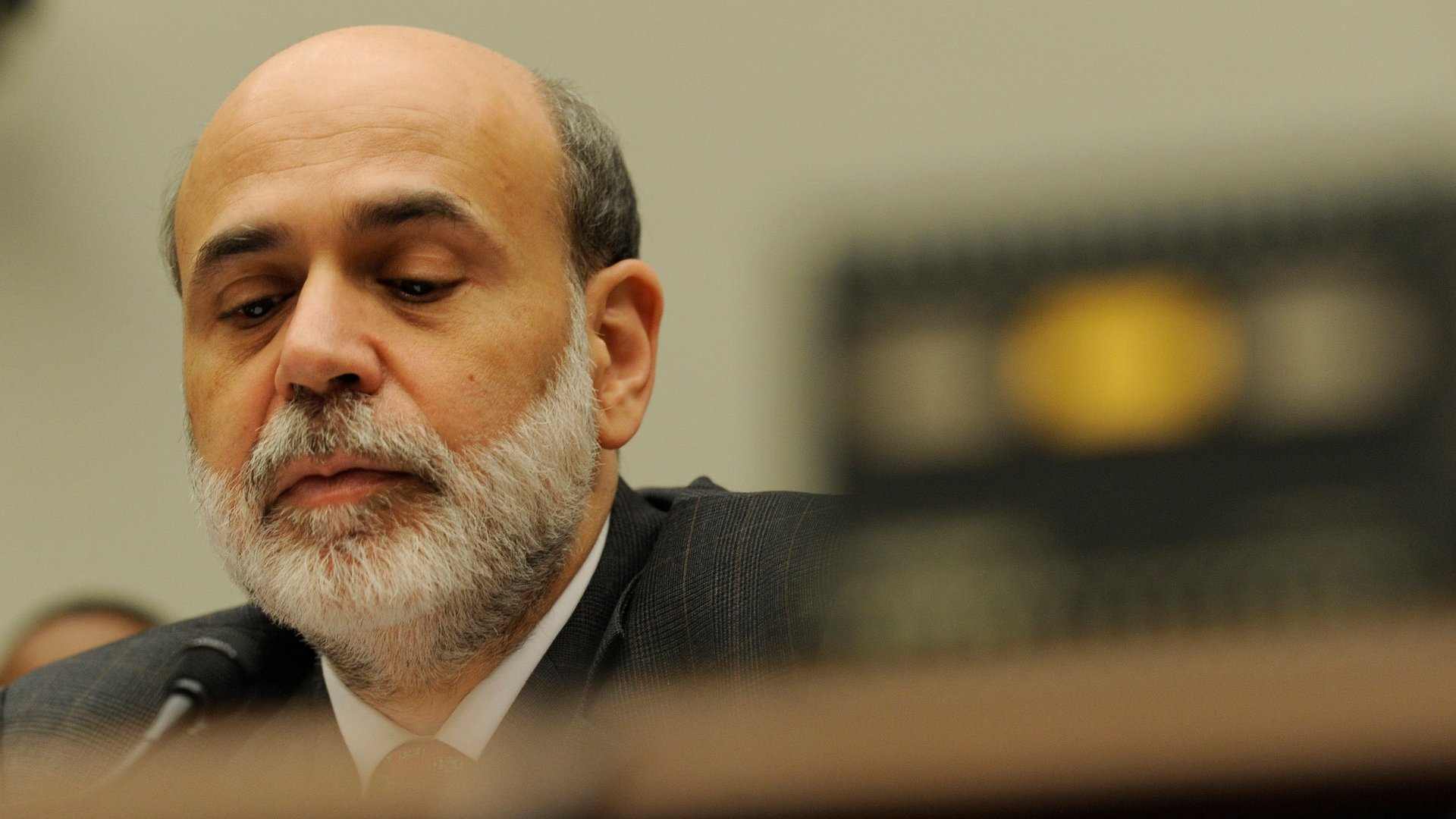Behind the scenes during the Federal Reserve’s wildest year
Today, the Federal Reserve released the transcripts of 2008 meetings held by its key monetary policy board. Released after a customary five-year delay, the transcripts offer a remarkably detailed glimpse into the thinking of some of the world’s most important financial policymakers as they struggled to stabilize a wobbling banking system and assess economic damage that, even then, looked incredibly severe. We’ll be updating this post and highlighting some of the most interesting moments from the documents.


Today, the Federal Reserve released the transcripts of 2008 meetings held by its key monetary policy board. Released after a customary five-year delay, the transcripts offer a remarkably detailed glimpse into the thinking of some of the world’s most important financial policymakers as they struggled to stabilize a wobbling banking system and assess economic damage that, even then, looked incredibly severe. We’ll be updating this post and highlighting some of the most interesting moments from the documents.
April 29, 2008 (pdf)
“[F]ollowing a Wall Street Journal article that alleged that some of the 16 LIBOR panelists were understating the rates at which they could obtain funding. The British Bankers Association reacted by threatening to throw out any panelist that was not wholly honest in its daily posting of its costs of obtaining funds at different maturity horizons. The BBA announcement appears to have provoked an outbreak of veracity among at least some of the panelists…There is considerable evidence that the official LIBOR fixing understates the rates paid by many banks for funding.”
— Fed official, and now New York Fed President, William Dudley, discussing a scandal that wouldn’t become public until 2010.
“On the one hand, we would get, I would call it for short, a Wall Street Journal editorial that the Federal Reserve is once again the craven cur and the spineless—boy, I am getting good at this—[laughter] lackey of the Congress by accommodating this request. I take that seriously. I’m sure we all take seriously even the perception that we are catering to this request. On the other side, I suppose that there would be what I could call the USA Today editorial, which is, “Why won’t the Fed, which is bailing out Wall Street left and right, include asset-backed paper in their facilities, even though it is consistent with all of their other practices and they take it in all of their other facilities?” and so on. So I think there are PR and political risks on both sides of this.”
— Bernanke debates potential public reaction to a plan to aid the student loan market.
“Here is what I am hearing from my corporate contacts. I’m going to just mention a few because it is fairly consistent across the board. From the CEO of the largest retailer in the country, not to be named but located in Arkansas, [laughter] I reported last time that they are budgeting price increases on 10,000 items of a little over 5 percent in 2008.”
— Dallas Fed President Richard Fisher relays information from Wal-Mart CEO Lee Scott.
“I think it is very possible that we will look back and say, particularly after the Bear Stearns episode, that we have turned the corner in terms of the financial disruption that we have just experienced.”
—Fed Governor Frederic Mishkin.
September 16, 2008 (pdf)
“I prefer not to put a limit on it, so I know I’ve got my own bazooka here.”
—Bernanke, discussing the open currency swap lines the Fed used to pump dollars into the global economy after Lehman Bros. went bankrupt the day before.
“But I would emphasize that a real concern is that there will be a run this week on money market funds because they may have to freeze the funds. It is possible that they will break the buck, and this will be at organizations that don’t have sufficient capital to make people whole.”
—Boston Fed President Eric Rosengren speaking even as a money-market fund broke the buck for the first time in fourteen years. He was ahead of the game on monetary policy, too.
“We are in a world of too big to fail, and as things have become more concentrated in this episode, it will become even more so.”
—Kansas City Fed President Thomas Hoenig, days before the Fed rescued AIG.
October 28-29, 2008 (pdf)
“MR. FISHER: Have we been approached by any other countries?
—Fed officials discuss international currency swaps; reportedly, both Indonesia and Turkey were denied access to the facility.
“On the national outlook, I’ll be brief. I think that obviously the projections for recession are in place. Down is where we’re going. How much, though, is speculation right now. I don’t know.”
— Kansas City Fed President Hoenig.
“I do think that one lesson of both Japan and the 1930s as well as other experiences is that passivity is not a good answer. We do have to continue to be aggressive. We have to continue to look for solutions. Some of them are not going to work. Some of them are going to add to uncertainty. I recognize that critique. I realize it’s a valid critique. But I don’t think that this is going to be a self-correcting thing anytime soon.”
—Bernanke.
“The downside risks around activity forecasts are huge and tilted to the downside. I think they’re huge because we’ve never seen a situation like this before, certainly not in my experience dating all the way back to 1970, and have only the vaguest notion of how it will play out in financial markets and spending.”
—Fed Vice Chair Donald Kohn.
“I think we are talking about an episode here that could easily be among the largest postwar recessions.”
—Bernanke, being fairly prescient.